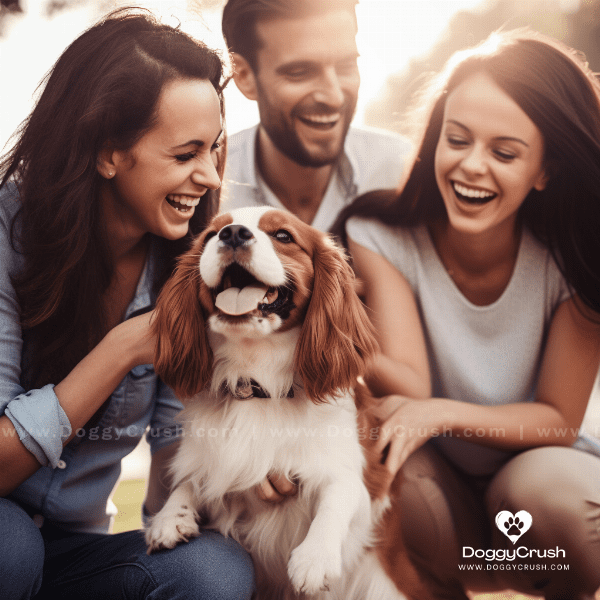Table of Contents
- History and Origin of Cavalier King Charles Spaniel Dogs
- Appearance and Characteristics of Cavalier King Charles Spaniel Dogs
- Temperament and Personality of Cavalier King Charles Spaniel Dogs
- Training and Exercise Needs of Cavalier King Charles Spaniel Dogs
- Grooming and Maintenance of Cavalier King Charles Spaniel Dogs
- Common Health Issues in Cavalier King Charles Spaniel Dogs
- Feeding and Nutrition of Cavalier King Charles Spaniel Dogs
- Living with Cavalier King Charles Spaniel Dogs: Tips and Tricks
- Choosing the Right Cavalier King Charles Spaniel Dog for You
- Conclusion: Why Cavalier King Charles Spaniel Dogs Make Great Companions.
History and Origin of Cavalier King Charles Spaniel Dogs
Cavalier King Charles Spaniel dogs are beloved companions known for their affectionate nature and charming personalities. But where did they come from, and how did they become the breed we know and love today? In this section, we’ll explore the history and origin of Cavalier King Charles Spaniel dogs.
Early Ancestry
The Cavalier King Charles Spaniel’s early ancestors can be traced back to the toy spaniels depicted in paintings from the 16th, 17th, and 18th centuries. These dogs were popular with the aristocracy and were often depicted in portraits with their owners.
Breeding for a Purpose
In the early 19th century, breeders began to develop specific types of spaniels for hunting and sporting purposes. The small toy spaniels became less popular, and the breed began to decline. In the 1920s, an American named Roswell Eldridge traveled to England in search of the original type of toy spaniel depicted in old paintings. He offered a cash prize for the best examples of these dogs, which he called “Blenheim” spaniels.
The Creation of a New Breed
The prize spurred interest in breeding the old-style toy spaniels, and breeders began to create a new type of dog that was larger and had a flatter face. This new breed was called the Cavalier King Charles Spaniel, named after King Charles II, who was known for his love of spaniels. The breed was officially recognized in the UK in 1945 and in the US in 1995.
Modern Popularity
Today, Cavalier King Charles Spaniel dogs are popular around the world for their loving nature and adorable looks. They are a favorite breed of many celebrities and have even been featured in movies and TV shows.
In conclusion, the Cavalier King Charles Spaniel’s history and origin can be traced back to the toy spaniels depicted in old paintings. The breed has gone through many changes over the years, but its popularity has only continued to grow. These dogs are a beloved part of many families and are sure to bring joy and happiness to anyone who welcomes them into their home.
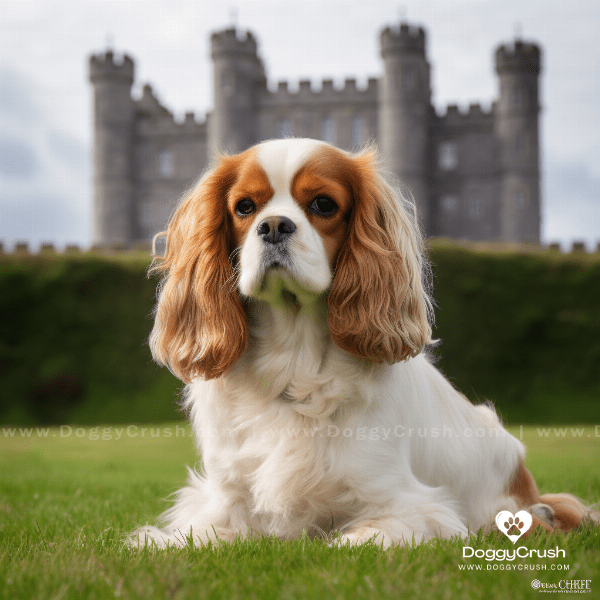
Appearance and Characteristics of Cavalier King Charles Spaniel Dogs
Cavalier King Charles Spaniel dogs are known for their adorable looks and friendly personalities. In this section, we’ll take a closer look at their appearance and characteristics.
Size and Build
Cavalier King Charles Spaniel dogs are a small breed, typically weighing between 13 and 18 pounds and standing 12 to 13 inches tall. They have a sturdy build with a broad chest and a straight, silky coat that can come in several colors, including Blenheim (red and white), tricolor (black, white, and tan), black and tan, and ruby (solid red).
Facial Features
One of the most distinctive features of Cavalier King Charles Spaniel dogs is their adorable face. They have large, round, dark eyes that give them an expression of warmth and friendliness. Their ears are long and feathered, and they have a short, broad muzzle with a black nose.
Temperament
Cavalier King Charles Spaniel dogs are known for their affectionate and gentle nature. They are friendly and outgoing, and they get along well with children, other dogs, and even cats. They are a social breed and thrive on human companionship, making them an excellent choice for families and seniors.
Exercise Needs
While Cavalier King Charles Spaniel dogs are a small breed, they still require regular exercise to stay healthy and happy. They enjoy short walks, playtime in a fenced yard, and interactive games with their owners.
Trainability
In conclusion, Cavalier King Charles Spaniel dogs are a small and charming breed known for their friendly nature and adorable looks. They make excellent companions for families, seniors, and anyone looking for a loyal and affectionate pet. Their small size and easy-going temperament make them adaptable to many living situations, and their trainability makes them a joy to own.
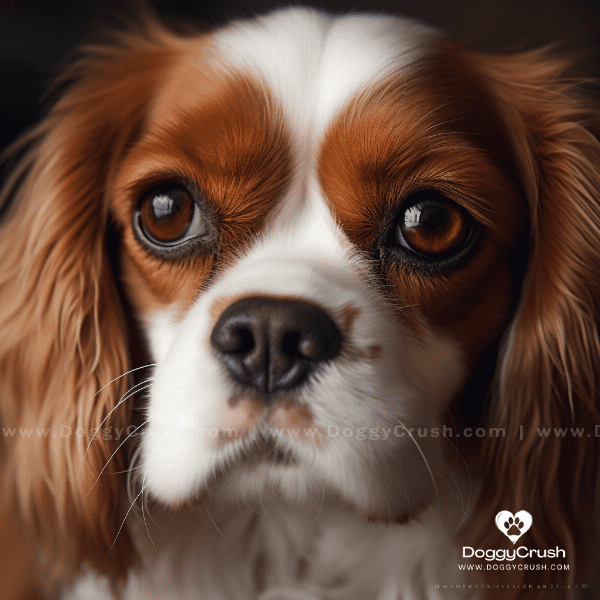
Temperament and Personality of Cavalier King Charles Spaniel Dogs
Cavalier King Charles Spaniel dogs are beloved for their friendly and affectionate nature. In this section, we’ll explore their temperament and personality in more detail.
Affectionate and Loving
One of the defining traits of Cavalier King Charles Spaniel dogs is their loving and affectionate nature. They are known to be “love sponges,” soaking up attention and affection from their owners. They are a social breed that thrives on human companionship and are known to snuggle up with their owners for a nap or a cuddle on the couch.
Friendly and Outgoing
Cavalier King Charles Spaniel dogs are a friendly and outgoing breed that gets along well with people of all ages, as well as other dogs and even cats. They are known for their gentle and kind nature, making them an excellent choice for families with children or other pets.
Intelligent and Trainable
Cavalier King Charles Spaniel dogs are intelligent and trainable, making them easy to train with positive reinforcement methods. They are eager to please their owners and respond well to praise and treats. They excel in obedience training and can even be trained for agility and other canine sports.
Adaptability and Sensitivity
Cavalier King Charles Spaniel dogs are a sensitive breed that can be affected by changes in their environment or routine. They are adaptable to different living situations, but they thrive best in a stable and loving home with a consistent routine.
In conclusion, Cavalier King Charles Spaniel dogs are a loving, playful, and friendly breed that makes an excellent companion for families, seniors, and anyone looking for a loyal and affectionate pet. Their intelligence and trainability make them easy to train, while their adaptability and sensitivity make them a joy to own.
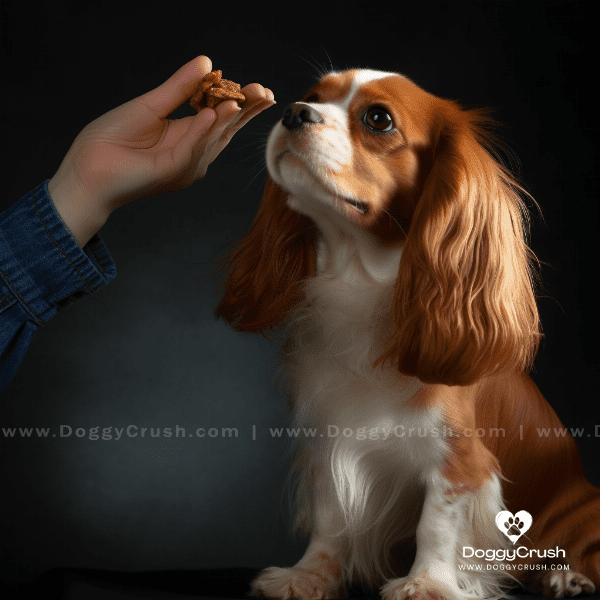
Training and Exercise Needs of Cavalier King Charles Spaniel Dogs
Training Methods
Cavalier King Charles Spaniel dogs are intelligent and trainable, making them easy to train with positive reinforcement methods. They respond well to praise and treats and enjoy learning new commands and tricks. It’s essential to start training early in their life to establish good behavior habits and prevent any undesirable behaviors.
Socialization
Socialization is crucial for Cavalier King Charles Spaniel dogs to develop into well-adjusted and confident adults. They need exposure to various people, animals, and environments to help them feel comfortable and confident in different situations. Early socialization can prevent anxiety, fear, and aggression problems in adulthood.
Mental Stimulation
In addition to physical exercise, Cavalier King Charles Spaniel dogs require mental stimulation to prevent boredom and destructive behavior. Interactive toys, puzzles, and games that challenge their minds can help keep them mentally stimulated and entertained.
Consistency and Patience
Training and exercise require consistency and patience, especially with a sensitive and affectionate breed like the Cavalier King Charles Spaniel. It’s essential to provide clear and consistent cues, reward good behavior, and avoid punishment or harsh training methods.
In conclusion, Cavalier King Charles Spaniel dogs require regular exercise, positive reinforcement training, and socialization to maintain their physical and mental health. They are an intelligent and trainable breed that thrives on human companionship, making training and exercise a fun and rewarding experience for both dog and owner.
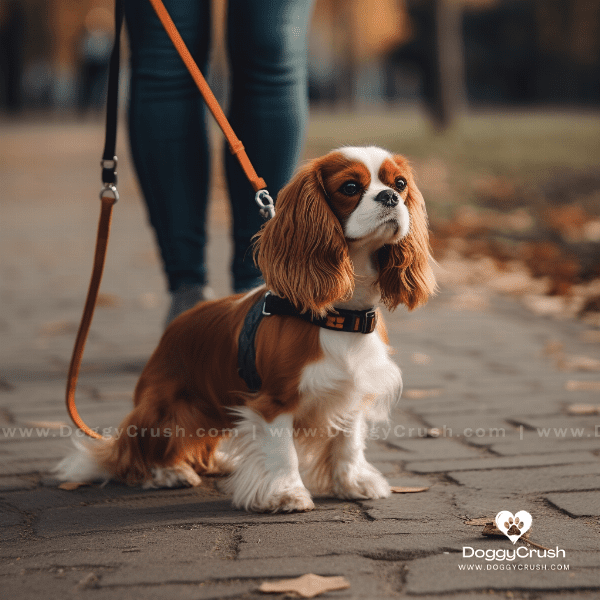
Grooming and Maintenance of Cavalier King Charles Spaniel Dogs
Coat Care
Cavalier King Charles Spaniel dogs have a soft and silky coat that can come in several colors, including Blenheim (red and white), tricolor (black, white, and tan), black and tan, and ruby (solid red). Their coat requires regular brushing to prevent matting and tangling, which can lead to skin irritation and discomfort. A pin brush and a slicker brush can be used to groom their coat, and a detangling spray can help make brushing easier. Regular bathing is also important to keep their coat clean and healthy, and a gentle dog shampoo is recommended.
Nail Care
Cavalier King Charles Spaniel dogs have small, delicate feet with long nails that require regular trimming. Long nails can cause discomfort and even pain, as well as damage to carpets and furniture. Nails should be trimmed regularly using a dog nail clipper or grinder, and care should be taken not to cut into the quick, which can cause bleeding and pain.
Dental Care
Dental care is crucial for the health and well-being of Cavalier King Charles Spaniel dogs. Regular brushing with a soft-bristled toothbrush and a dog-specific toothpaste can help prevent gum disease, tooth decay, and bad breath. Dental chews and toys can also help keep their teeth clean and healthy.
Eye Care
Cavalier King Charles Spaniel dogs have large, round eyes that can be prone to tearing and discharge. Regular cleaning with a damp cloth can help prevent eye problems, and care should be taken to check for any signs of infection or injury.
In conclusion, Cavalier King Charles Spaniel dogs require regular grooming and maintenance to keep them healthy and comfortable. Their long, silky coat, delicate feet, and large eyes require specific care and attention to prevent discomfort and health problems. With proper grooming and maintenance, Cavalier King Charles Spaniel dogs can live a happy and healthy life.
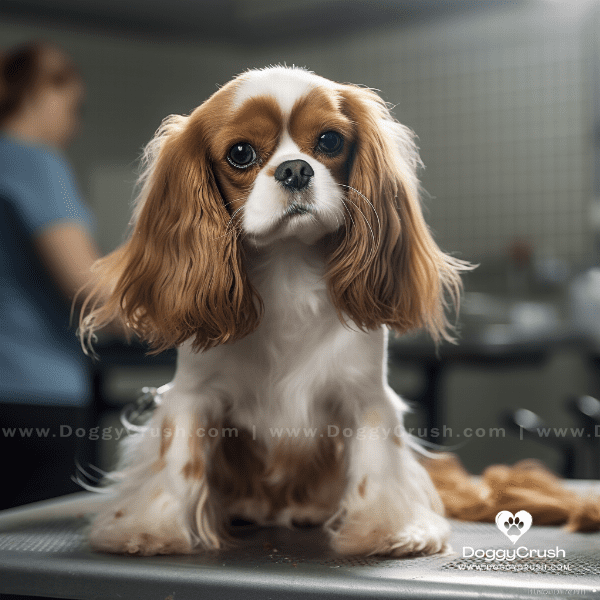
Common Health Issues in Cavalier King Charles Spaniel Dogs
Cavalier King Charles Spaniel dogs are a relatively healthy breed, but like all breeds, they are prone to certain health issues. In this section, we’ll explore some of the most common health issues in Cavalier King Charles Spaniel dogs.
Heart Disease
Heart disease is one of the most common health issues in Cavalier King Charles Spaniel dogs, with up to 50% of the breed affected. The most common form of heart disease in Cavaliers is mitral valve disease, which can lead to heart failure if left untreated. Regular cardiac exams and screenings are recommended to detect heart disease early.
Syringomyelia
Syringomyelia is a neurological condition that can affect Cavalier King Charles Spaniel dogs. It occurs when the skull is too small for the brain, causing pressure on the spinal cord and leading to pain, weakness, and other symptoms. MRI screening can help detect syringomyelia early, and treatment options include medication and surgery.
Hip Dysplasia
Hip dysplasia is a genetic condition that affects many breeds, including Cavalier King Charles Spaniel dogs. It occurs when the hip joint does not develop properly, leading to pain, inflammation, and arthritis. Regular hip exams and screenings can help detect hip dysplasia early, and treatment options include medication, physical therapy, and surgery.
Eye Problems
Cavalier King Charles Spaniel dogs are prone to several eye problems, including cataracts, retinal atrophy, and dry eye. Regular eye exams and screenings can help detect eye problems early, and treatment options may include medication or surgery.
Ear Infections
Cavalier King Charles Spaniel dogs have long, droopy ears that can be prone to infections and ear mites. Regular ear cleaning and drying can help prevent ear infections, and signs of infection should be treated promptly with medication.
In conclusion, Cavalier King Charles Spaniel dogs are a relatively healthy breed, but they are prone to certain health issues. Regular check-ups with a veterinarian and screenings can help detect health problems early, which can improve the chances of successful treatment. With proper care and attention, Cavalier King Charles Spaniel dogs can live a long and healthy life.
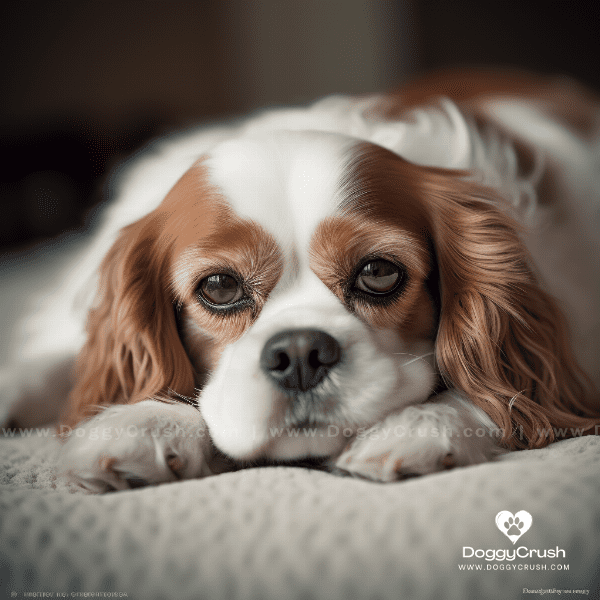
Feeding and Nutrition of Cavalier King Charles Spaniel Dogs
Proper nutrition is essential for the health and well-being of Cavalier King Charles Spaniel dogs. In this section, we’ll explore their feeding and nutrition needs in more detail.
Age and Activity Level
The nutritional needs of Cavalier King Charles Spaniel dogs vary based on their age and activity level. Puppies and younger dogs require more calories and nutrients to support their growth and development, while older dogs may require a lower calorie diet to maintain their weight. Cavalier King Charles Spaniel dogs are an active breed that requires regular exercise, which can also affect their nutritional needs.
Protein and Fat
Protein and fat are essential nutrients for Cavalier King Charles Spaniel dogs. High-quality protein sources, such as chicken, turkey, and fish, provide the building blocks for muscle and tissue development. Fat provides energy and supports healthy skin and coat. It’s important to choose a dog food that contains an appropriate balance of protein and fat for your dog’s age and activity level.
Carbohydrates and Fiber
Carbohydrates and fiber are also important for Cavalier King Charles Spaniel dogs. Carbohydrates provide energy and can come from sources such as brown rice, sweet potatoes, and vegetables. Fiber supports healthy digestion and can come from sources such as beet pulp, pumpkin, and flaxseed.
Feeding Schedule
Cavalier King Charles Spaniel dogs do well with a consistent feeding schedule, ideally two meals per day. Free-feeding or leaving food out all day can lead to overeating and weight gain, which can increase the risk of health problems such as diabetes and joint issues.
Treats
Treats should be given in moderation and should not exceed 10% of a Cavalier King Charles Spaniel dog’s daily calorie intake. It’s important to choose high-quality treats that are low in calories and do not contain harmful ingredients such as artificial colors or flavors.
In conclusion, proper nutrition is crucial for the health and well-being of Cavalier King Charles Spaniel dogs. Their nutritional needs vary based on their age and activity level, and it’s important to choose a high-quality dog food that provides an appropriate balance of protein, fat, carbohydrates, and fiber. A consistent feeding schedule and moderation with treats can help keep Cavalier King Charles Spaniel dogs healthy and happy.

Living with Cavalier King Charles Spaniel Dogs: Tips and Tricks
Cavalier King Charles Spaniel dogs make great pets for families, seniors, and anyone looking for a loyal and affectionate companion. In this section, we’ll explore some tips and tricks for living with Cavalier King Charles Spaniel dogs.
Socialization
Socialization is crucial for Cavalier King Charles Spaniel dogs to develop into well-adjusted and confident adults. Early socialization can prevent anxiety, fear, and aggression problems in adulthood. Socialization should include exposure to various people, animals, and environments.
Training
Training is essential for Cavalier King Charles Spaniel dogs to establish good behavior habits and prevent any undesirable behaviors. Positive reinforcement methods such as praise and treats should be used, and harsh training methods should be avoided.
Exercise
Cavalier King Charles Spaniel dogs require daily exercise to maintain their physical and mental health. They enjoy short walks, playtime in a fenced yard, and interactive games with their owners. Regular exercise can prevent weight gain and other health issues, as well as behavioral problems such as boredom, anxiety, and destructive chewing.
Grooming
Cavalier King Charles Spaniel dogs have a long, silky coat that requires regular grooming to keep it healthy and looking its best. Regular brushing, bathing, nail trimming, and ear cleaning can prevent discomfort and health problems.
Health Care
Regular check-ups with a veterinarian and screenings can help detect health problems early, which can improve the chances of successful treatment. Vaccinations, heartworm prevention, and flea and tick prevention should also be a part of a Cavalier King Charles Spaniel dog’s health care plan.
Affection and Attention
Cavalier King Charles Spaniel dogs are affectionate and loving, and they thrive on human companionship. Providing regular affection and attention, such as cuddling, playing, and snuggling, can help them feel loved and happy.
In conclusion, living with Cavalier King Charles Spaniel dogs can be a rewarding and enjoyable experience. Socialization, training, exercise, grooming, health care, and providing regular affection and attention can help ensure a happy and healthy life for your Cavalier King Charles Spaniel dog.
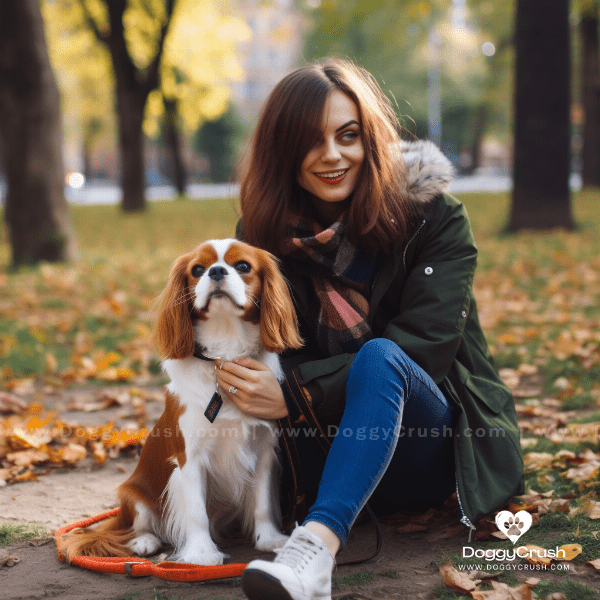
Choosing the Right Cavalier King Charles Spaniel Dog for You
Cavalier King Charles Spaniel dogs make wonderful pets, but it’s important to choose the right dog for your lifestyle and needs. In this section, we’ll explore some tips for choosing the right Cavalier King Charles Spaniel dog for you.
Consider Your Lifestyle
When choosing a Cavalier King Charles Spaniel dog, consider your lifestyle and how a dog would fit into it. If you have a busy schedule and are away from home for long periods, a dog with separation anxiety may not be the best fit. If you have young children, a dog with a gentle temperament and good socialization skills may be ideal.
Find a Reputable Breeder or Rescue
Finding a reputable breeder or rescue organization is crucial when choosing a Cavalier King Charles Spaniel dog. Reputable breeders will health test their dogs and provide you with information on their health history and pedigree. Rescue organizations will provide you with information on the dog’s temperament, behavior, and health history.
Meet the Dog in Person
Meeting the dog in person is important to assess their temperament and personality. This will help you determine if the dog is a good match for you and your family. If you have other pets, it’s important to introduce them to the new dog to ensure compatibility.
Ask Questions
When choosing a Cavalier King Charles Spaniel dog, don’t be afraid to ask questions. Ask about their health history, temperament, behavior, and training. Ask for references from other owners, and talk to your veterinarian for their advice.
Consider Your Commitment
Bringing a Cavalier King Charles Spaniel dog into your life is a commitment, and it’s important to consider the long-term responsibilities of owning a dog. This includes providing for their health care, exercise, training, and affection needs.
In conclusion, choosing the right Cavalier King Charles Spaniel dog for you requires careful consideration of your lifestyle, finding a reputable breeder or rescue organization, meeting the dog in person, asking questions, and considering your commitment to owning a dog. With the right match, a Cavalier King Charles Spaniel dog can bring years of joy and companionship into your life.
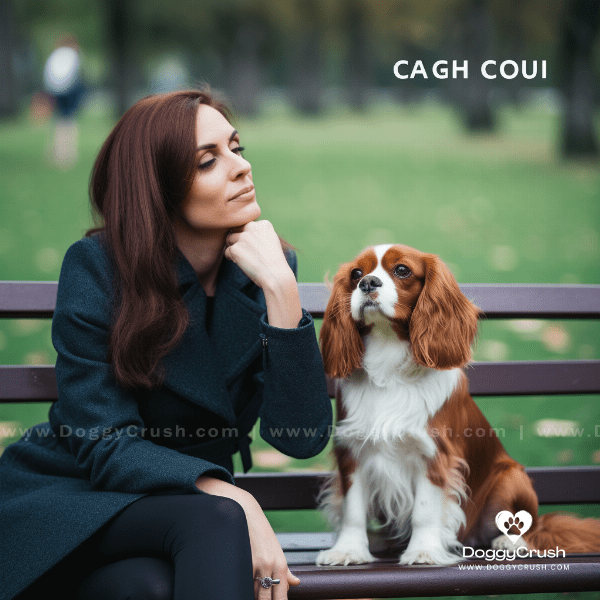
Conclusion: Why Cavalier King Charles Spaniel Dogs Make Great Companions.
Cavalier King Charles Spaniel dogs are a wonderful breed that make great companions for individuals and families alike. In this article, we’ve explored their history and origin, appearance and characteristics, temperament and personality, training and exercise needs, grooming and maintenance, common health issues, feeding and nutrition, living tips and tricks, and tips for choosing the right dog.
Affectionate and Loyal
Cavalier King Charles Spaniel dogs are known for their affectionate and loyal nature. They love to cuddle and snuggle with their owners and are always eager to please.
Playful and Active
Cavalier King Charles Spaniel dogs are playful and active, making them great companions for families with children or individuals who enjoy an active lifestyle. They love to play and run around in the yard, and they enjoy going for walks and hikes with their owners.
Gentle and Good with Children
Cavalier King Charles Spaniel dogs have a gentle nature and are great with children. They are patient and loving, and they make great playmates for kids.
Easy to Train
Cavalier King Charles Spaniel dogs are intelligent and eager to please, which makes them easy to train. Positive reinforcement methods such as praise and treats work best, and harsh training methods should be avoided.
Low Shedding
Cavalier King Charles Spaniel dogs have a low-shedding coat, which makes them a great choice for individuals with allergies or those who prefer a cleaner home.
In conclusion, Cavalier King Charles Spaniel dogs make great companions for individuals and families alike. Their affectionate and loyal nature, playful and active temperament, gentle and good with children disposition, easy-to-train abilities, and low-shedding coat are just a few of the reasons why they are such a beloved breed. With proper care and attention, a Cavalier King Charles Spaniel dog can bring years of joy and companionship into your life.
